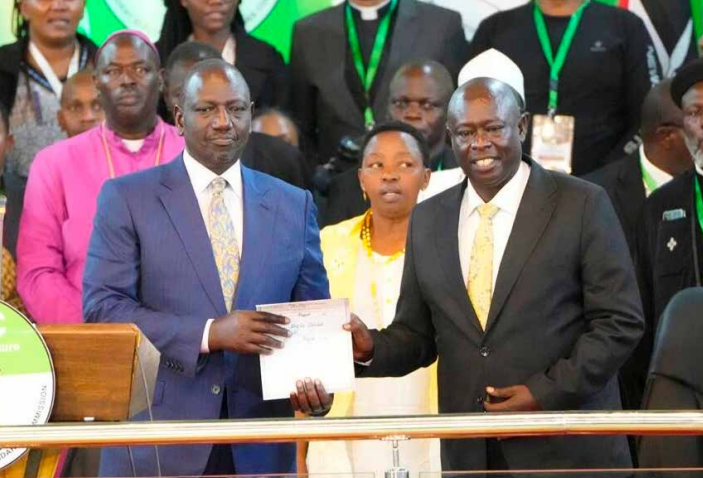Ruto changing the game on management of government

President William Ruto’s victory at his first attempt and without the support of the incumbent proved his prowess in strategy. In the early days of his presidency, he is also proving to be a corporate strategist.
He started the year with a retreat for the Cabinet whose main outcome was the requirement for his top management to run the government like a corporate entity.
Reports from the meeting at the Mount Kenya Safari Club indicated that the Cabinet Secretaries were required to develop strategic plans to bring to fruition Kenya Kwanza’s manifesto.
The Cabinet Secretaries have been asked to align their plans to five key pillars: agriculture, Universal Health Coverage, the digital economy, access to affordable credit and manufacturing and value addition.
Combined with these are the day-to-day issues – food security, cost of living and national security.
The attention to detail and energy he took to the campaign trail is reported to have been replicated in his engagements with his Cabinet Secretaries, where he is a hands-on boss demanding detailed weekly meetings, stakeholder updates and the use of IT in the management of Cabinet affairs.
Cabinet Secretaries are now required to present their ideas using presentation software like Powerpoint and to demonstrate in-depth knowledge of their plans and to make the presentations themselves.
It has meant that the Cabinet Secretaries do not delegate the work to their technical staff, the Principal Secretaries, and have to know in detail the plans and the picture of success.
For the private sector, the upshot of the new approach to running government is that things are likely to move faster at the Executive now and Cabinet Secretaries will be more involved in the job.
The new approach creates a good platform on which the private sector can engage and like never before, Cabinet Secretaries are now more open for solutions that they can adopt.
Election animosity has been revived but options are limited
Raila Odinga was not in the country on Thursday when his coalition, Azimio, held a press conference to announce that they had found fresh evidence that the presidential election last year was rigged.
“What we have is a bombshell,” said Kalonzo Musyoka, one of the coalition’s luminaries, echoing the statement by James Orengo when they delivered a truckload of evidence to the Supreme Court last year.
The coalition has not said what it will do this time round but the claims and “fresh” evidence are likely to create more rhetoric than action.
The coalition has asked the Independent Electoral and Boundaries Commission to give it access to its servers to check the claims by a whistleblower, who alleges that Mr Odinga won the election.
That request is not likely to be granted. The IEBC is likely to adopt the same position it did during the petition, that the original result forms were posted on its website and that whatever access the Supreme Court had asked for was granted, which was also reported by the registrar and a report submitted.
A day before the Azimio coalition spoke, President Ruto revisited the drama around the declaration of the results and alleged there was a plot to murder IEBC chairman Wafula Chebukati.
It is still too early to tell what the ultimate result of these claims about the election will be. The Kenya Kwanza administration has blown hot and cold on whether it will constitute an inquiry into the events around the election.
If he decides to pick up the mantle and push the latest allegations by his coalition, Mr Odinga’s options are limited to continuing with the demand for an inquiry and the reopening of the results for scrutiny.
Given that he already exhausted the only legal option available, the Supreme Court, it would mean he creates the agitation mechanisms to force a political solution.
The last tool he effectively used was creating tension through incessant marches and demonstrations, which ultimately yielded the Handshake. Before that, he initiated reforms at the IEBC by regular marches to its headquarters, resulting in a rapprochement that saw the commissioners removed and the law guiding their recruitment changed.

